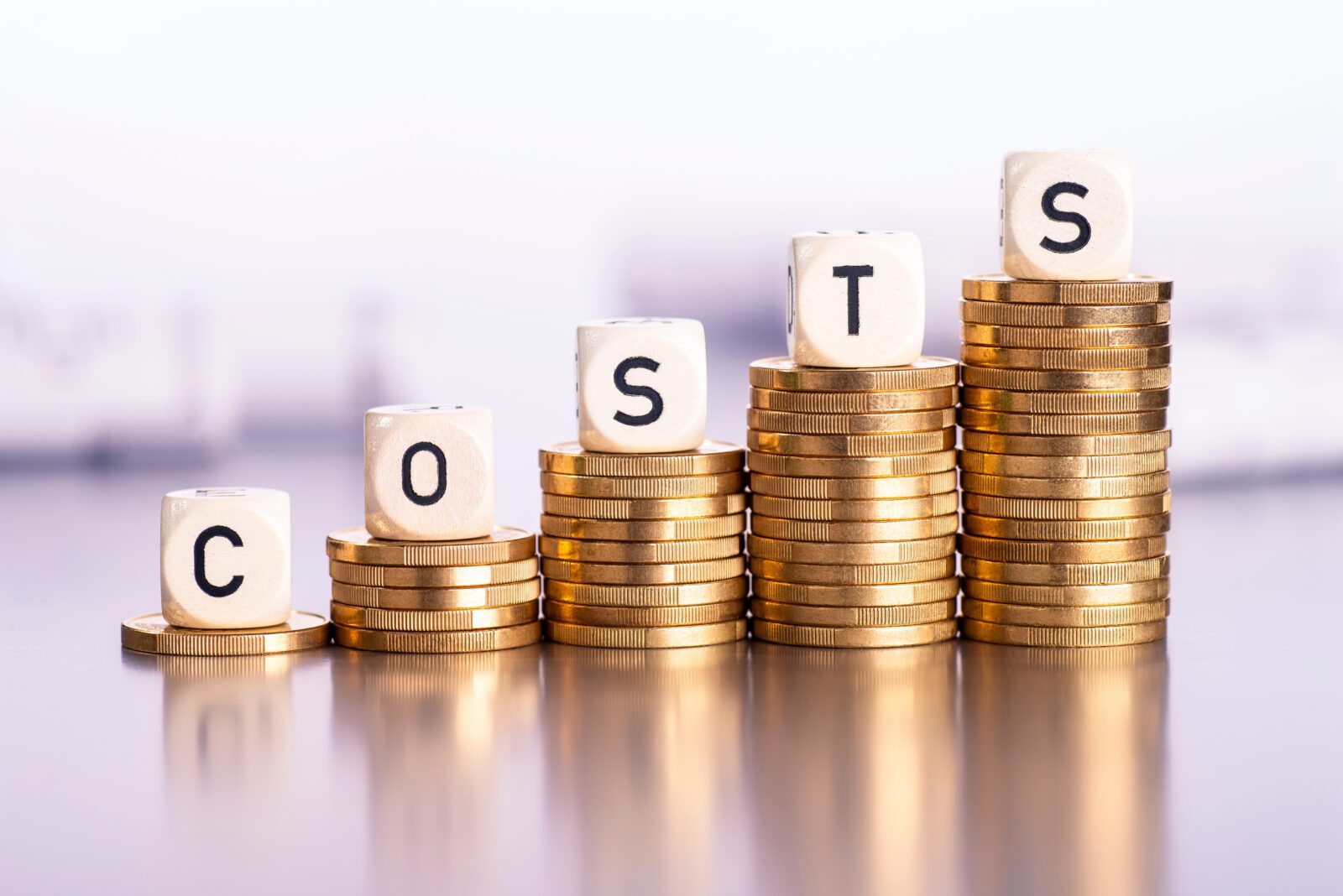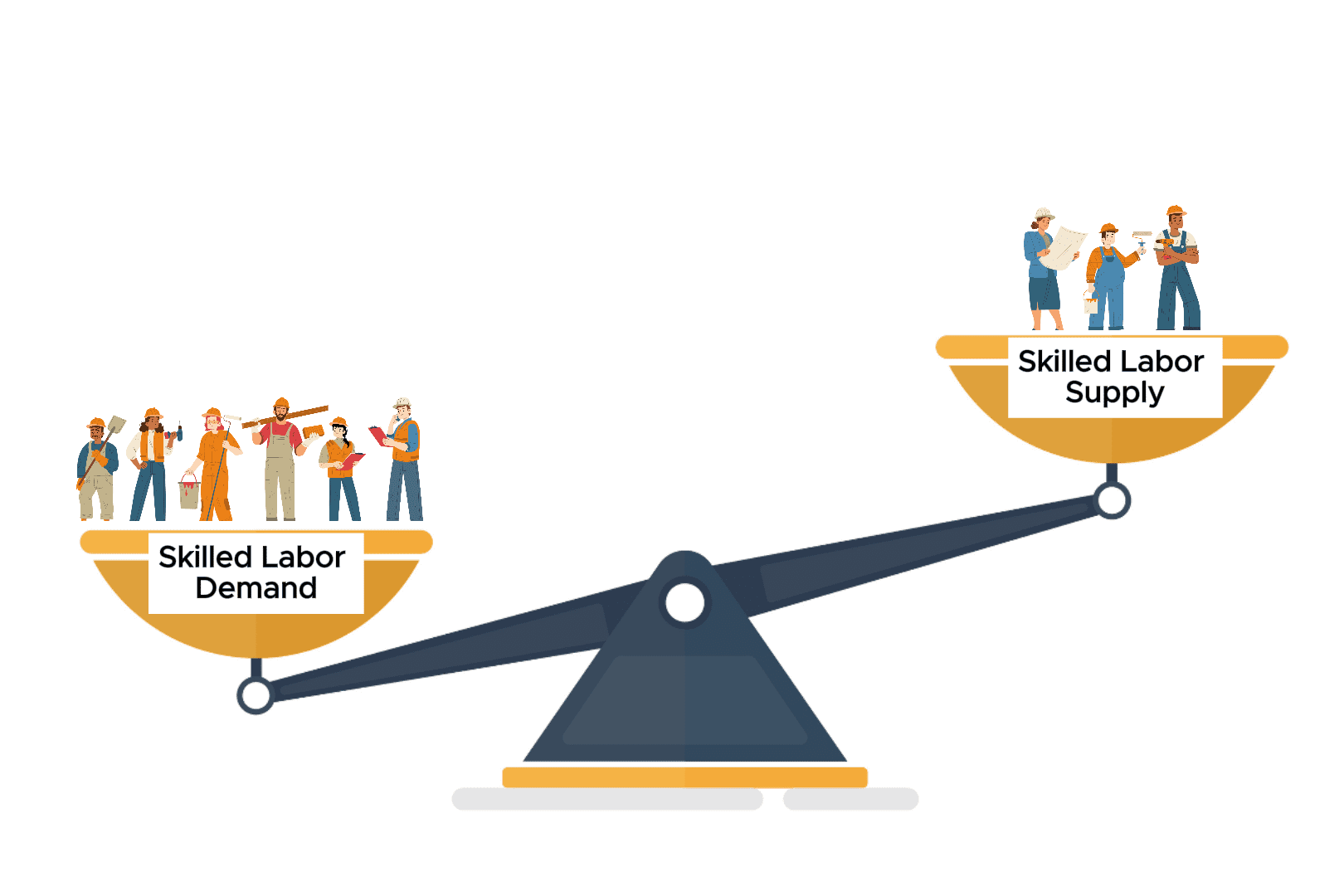Ask a Show Organizer: Rising Costs of Trade Shows

TL;DR (BUT YOU REALLY SHOULD READ IT!)
- Feel the pinch because you can’t fight the rising cost of trade shows. Everyone suffers — show organizers, exhibitors, suppliers, and attendees.
- Prove ROI with available digital tools such as exhibitor dashboards and lead-retrieval devices. Some of them are free.
- Become partners with your show organizer. You might be surprised what they can do for you. (Check out how Christine Gahler worked with her organizer to save thousands.)
EDE’s Jay Menashe, SVP of Sales & Marketing, caught up with show organizer RX USA’s Jordan Tuchband to understand what’s influencing the rising costs of trade shows. (It also gave these two cousins a chance to catch up on the family gossip!)
We can build the marketplace, but then you need to capture the opportunity that’s in front of you.
Relationship with Show Organizer
JORDAN TUCHBAND: It’s a partnership because in the end, if exhibitors have a successful event, guess what? They want to come back to the next edition. So we need to do our part in terms of producing that valuable event and giving exhibitors the tools they need to prove its value. You’ll find we invest in ways that many people might not notice.
In the spirit of partnership, there’s also ownership on the exhibitor side. To be successful, you need to let attendees know you’re at the show, and then do something to help your company stand out from the competitors. We can build the marketplace, but then you need to do your part as an exhibitor to help capture the opportunity that’s in front of you.
JAY: It makes a lot of sense to view the relationship as a partnership with ownership on both sides. What are some ways that organizers help exhibitors in ways they might not see or recognize? Because you’re doing more than most of us even know.
JORDAN: The digital side has been a massive investment over many years. We are increasingly bringing everything under one umbrella so that it’s one ecosystem that talks to the other pieces of itself. We’re trying to give exhibitors more information they can use to help determine the value of the event. About a year ago we created the exhibitor dashboard available for the majority of our events. That gives exhibitors the power to see how they’re performing against similar exhibitors in the same category.
We also have an in-house lead-capture tool called Emperia that we use globally. The data that you capture from that gives you really deep insight into the attendees that you’re meeting with. Because it’s not always just volume — it’s the appropriateness of the leads that you’re capturing. Is this the right contact? Is this the decision-maker, an influencer of the decision-makers, or someone not even in my industry? So we give them tools to help them make those assessments. Those are just a couple tools we provide to help exhibitors, and I don’t think a lot of people realize it.

Rising Costs
JORDAN: There’s no smoking gun for this. There are lots of different reasons for rising costs, and they change over time. Right now, a big chunk of it is still related to labor. We had a massive pandemic where there was a exodus of talent and skilled labor from our industry. Now we have to compete for that labor to get them back or hire new labor in a very competitive labor market.
Then look at venues in Vegas, Chicago, New York, Orlando. Everyone wants to be there. So those venues are facing unprecedented demand from events of all kinds, whether it’s a user conference, a corporate kickoff, a trade event, etc. The demand for space allows venues to increase prices. Events could move to a tier-two or tier-three city to save costs. But that doesn’t work if attendance drops off due to the change in location.
JAY: Are there steps that you’re taking to control some of these long-term costs?
JORDAN: It’s fair to say organizers feel the same cost increases, whether it’s labor, production, rental, security, F&B. That said, when it comes to things like inflationary cost increases, we make a real effort to mitigate those cost increases. We try to do absorb those costs or reduce their impact where we can. And we’re always looking to be more efficient on our side. Anything we can do to be more efficient is potential savings that can get passed on to a customer.
I can’t speak for other organizers, but we are very strategic and data driven when it comes to how we price things internally, whether it’s looking at the value from the leads generated and the volume of traffic that we’re monitoring in certain areas of the show. Did this part of the show perform, according to data, much stronger than other areas? That’s now the beachfront property, and the pricing is higher. Maybe another area didn’t perform as well as expected, so we need to adjust the pricing differently there. We have a lot of levers to pull based on data when it comes to things like pricing.
Independent small organizers or an association show may not enjoy the same benefit in terms of negotiating leverage as larger organizers.
Negotiating Power(lessness)
JAY: Let’s talk about the negotiating power of your side with the GCs and venues. Is that anything that RX is actively doing? Or is there anything you’re able to do to help with that negotiating power?
JORDAN: We always go into agreements negotiating. A lot of the venues and some GCs are strategic partners — those are important relationships that we have for multiple events. That gives larger organizers like an RX a little bit more leverage in the conversation. When you look at your independent small organizers or an association show, they may not enjoy the same benefit in terms of negotiating leverage.
That doesn’t always mean we have negotiating leverage. When events are booking four to seven years out at venues such as the Venetian Expo or the Orlando Convention Center, we don’t have as much leverage as some exhibitors might assume because there’s always another event looking to get in. A lot of the time, the hall rent is simply the hall rent. And there’s nothing we can do about that.
The more we understand what exhibitors are doing, the better position the event organizer is in to help.
Rethinking Shows
JORDAN: This is a huge focus for us as RX. If you look at the generational changes in attendance that are happening now, you have your millennials and younger generations that are now starting to be decision-makers and influence budget. Those are your future attendees, and their decision-making process to attend events is quite a bit different than what the legacy attendees have typically done. It relies a lot more on those memorable moments — those experiential elements — in addition to the core value that they’re going to extract.
So from the event organizer perspective, we’re making investments on our side to change the event experience. It’s more about what is happening between the booths, what’s happening in the after-hours of the events, the content that’s being presented at the event, the speakers that you’re having. This year, we’re doing several events that have a full-on private concert that’s happening with different VIP areas for sponsors and all kinds of different experiential elements and activations that are connected to these events that we as the organizer are investing in.
I would encourage exhibitors to have conversations with their sales contacts and event organizers around their desire to do something new and unique and experiential. Let’s see how we can partner with you on doing something really cool, or what we can do to help enhance the visibility of what you’re doing. The more we understand what exhibitors are doing, the better position the event organizer is in to help.
JAY: That’s a great tip. I don’t think I’ve ever thought to reach out to the organizers to be like, hey, we’re doing this really amazing thing in our booth and push it to them so they could potentially promote it. I really love that.
JORDAN: Or you could do that somewhere else in the show and extend the reach of your brand to more people who may not know what your company is and where you are in the event. So why not take that activation and put it somewhere else, expand that reach? That’s a conversation you have to have with the organizer. Maybe they can work on something for you to make that some other kind of cool experience. And that’s where the partnership comes in. Maybe we can take your concept and plug it into the event and get some economies of scale on both sides.
JAY: And I think that’s a good way to end our conversation about the rising cost of trade shows. I would say there are three main takeaways. One, you really can’t fight it — it’s happening everywhere. Two, take advantage of the digital tools to prove that you are getting the value out of it. Three, being partners with the organizer can help tremendously.


